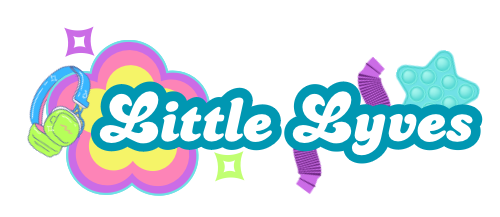In our everyday conversations, words carry immense power. The way we talk about neurodivergence – autism, ADHD, sensory processing differences, and other variations of human neurology- can either foster respect or perpetuate harm. Recognizing ableist language helps us build a more inclusive world, especially for neurodivergent children.
Let’s explore what ableism looks like in language about neurodivergence and ways to shift toward more affirming alternatives.
1. “Disorder” vs. “Difference”
- Ableist Language: Referring to neurodivergence as a “disorder” implies something is broken and needs fixing.
- Affirming Language: Use terms like “autism spectrum” or “sensory processing differences.” These highlight neurodivergence as a natural variation rather than a flaw.
Correction Example: Instead of saying “My child has a sensory processing disorder,” try, “My child has sensory processing differences.”
2. “High-Functioning” and “Low-Functioning” Labels
- Ableist Language: Terms like “high-functioning” or “low-functioning” focus on perceived levels of functionality based on typical societal standards. These labels can obscure individual strengths and challenges.
- Affirming Language: Describe specific needs or strengths without assigning a “level” of functionality.
Correction Example: Instead of “high-functioning autism,” you could say, “My child is verbal and has strengths in math but needs support with social cues.”
3. “Special Needs” vs. “Specific Needs”
- Ableist Language: The term “special needs” can feel infantilizing or distancing.
- Affirming Language: Terms like “specific needs” or “individualized needs” respect each person’s unique requirements without adding stigma.
Correction Example: Rather than “He has special needs,” consider, “He has specific needs related to sensory processing.”
4. “Suffers from” or “Burden” Language
- Ableist Language: Describing a person as “suffering from” neurodivergence suggests it’s an inherently negative experience.
- Affirming Language: Neurodivergent individuals might face unique challenges, but framing it as “suffering” places a negative label on their identity. Instead, use neutral language that speaks to their experience.
Correction Example: Instead of “She suffers from autism,” say, “She is autistic and experiences sensory differences.”
5. Misconceptions on Causes: Vaccines and Pesticides
- Harmful Narrative: The notion that vaccines, pesticides, or other environmental factors “cause” autism isn’t just scientifically unfounded but is rooted in ableism. This view assumes autism is an illness or a deficit, rather than a natural neurotype. By suggesting a “cause,” it implies that neurodivergence is a condition to be avoided.
Affirming Perspective: Autism is a natural variation in human neurobiology, not something inflicted upon a person. Shifting this narrative helps challenge the societal pressure to find a “cure” or “prevent” neurodivergence.
6. “Handicap” vs. “Disability” or “Differently-Abled”
- Outdated Language: Terms like “handicap” are often seen as outdated and can carry negative connotations, suggesting that a person’s physical or neurological differences are inherently limiting or burdensome.
- Respectful Language: Use “disability” as a more accurate term or “differently-abled” if appropriate to the context. These words acknowledge an individual’s needs without framing their condition in a negative light. However, some people may prefer “disabled” because it acknowledges the unique challenges and societal barriers they navigate.
Correction Example: Instead of saying, “She’s handicapped by her autism,” try, “She is autistic, which means she may need support in specific areas.”
7. Challenging the General Public’s View of Autism
- Current Misconceptions: Many people in the general public still hold outdated views of autism as something that needs “curing” or as a severe disability. Some may mistakenly assume that autism is a homogeneous experience, marked by extreme traits, or something only visible in young children.
- Affirming Perspective: Autism is a spectrum with diverse presentations. Each autistic person is unique, and while some may need more support, others lead fully independent lives. Education and exposure to the varied realities of autism help dismantle these assumptions.
Why Language Matters
By actively shifting our language, we’re challenging ableist perspectives and promoting respect for neurodivergent individuals. Neurodivergence isn’t something to be cured or avoided; it’s an essential part of our world. By learning and using affirming language, we’re creating a more inclusive and understanding society.
Recommended book:
As an Amazon Associate, I earn from qualifying purchases.
“Beyond Inclusion: How to Raise Anti-Ableist Kids” by Carrie Cherney Hahn
https://amzn.to/3XL22I8

